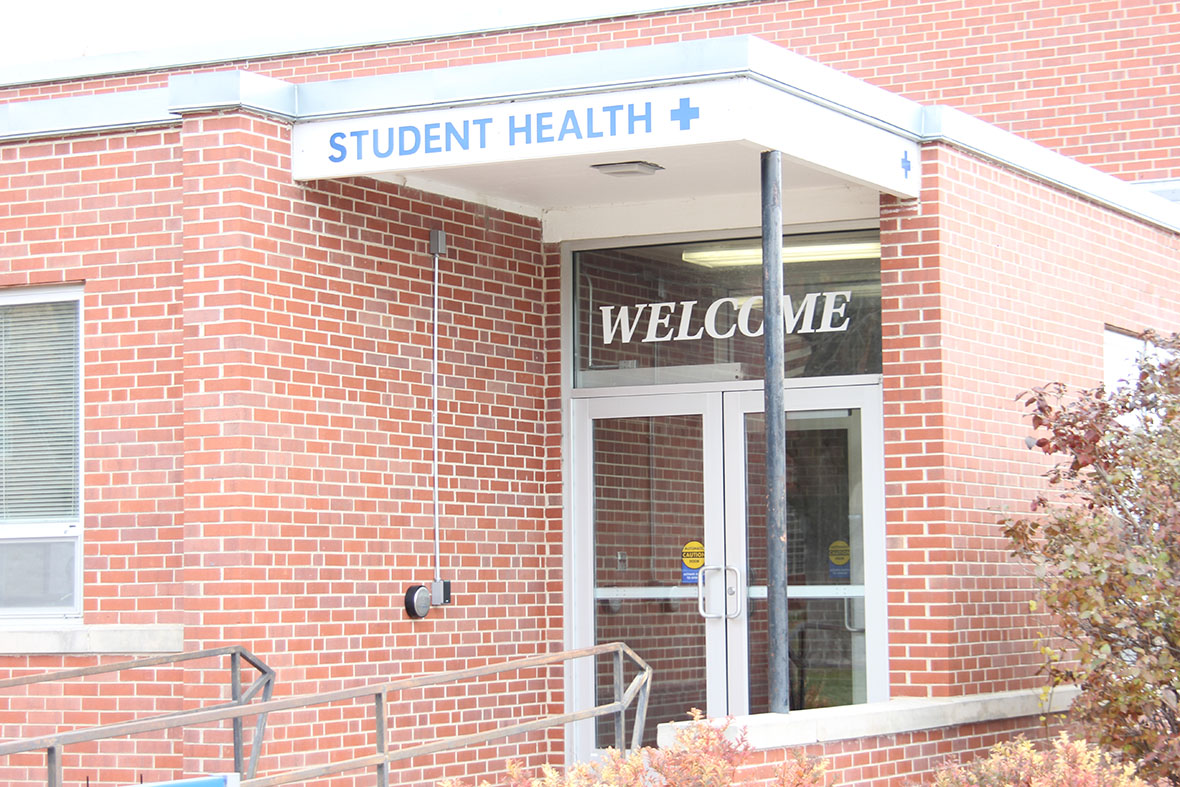As the weather cools and the semester progresses, UNK is seeing its usual uptick in student illnesses.
Cold and flu season, paired with the stress of academics and busy schedules, creates the perfect environment for sickness to spread.
“We are really coming up on respiratory illness season,” said Anne Lano, a family nurse practitioner and the director of Student Health. “We have seen a lot of illnesses coming into the clinic.”
Student Health has prepared for the influx by offering flu shots and on-site testing for illnesses such as COVID-19, Influenza A and B and RSV. For more in-depth diagnosis, Student Health works with outside lab companies to identify and treat specific respiratory illnesses. These tests provide detailed information on the illness and targeted guidance for treatment, including recommended antibiotics when applicable.
Additionally, the clinic stays atop public health illness trends to anticipate and respond to the most prevalent conditions.
Lano said students should prioritize basic health practices such as drinking water, maintaining a balanced diet, and getting enough sleep.
“Our immune systems are constantly fighting for us,” Lano said. “But if you’re not supporting your body, it’s harder to stay well.”
Living in close quarters and attending crowded classrooms make it challenging for students to avoid exposure, especially as many juggle heavy workloads and neglect self-care.
Students are encouraged to call or visit Student Health for support and guidance. While many illnesses can be managed at home, Lano said it’s OK to seek help if they’re unsure or feeling overwhelmed.
The clinic strives to be a resource for students navigating healthcare independently for the first time, offering education on everything from medications to follow-up care.
Lano said that simple, consistent habits are key to staying well during this season of sickness. Her tips include:
- Drink plenty of water: Staying hydrated helps the body flush out toxins and keeps mucus from thickening, which can worsen symptoms when sick. Lano recommends about 60-80 ounces per day.
- Eat nutritious foods: A balanced diet rich in fruits, vegetables and proteins strengthens the immune system. Avoid excessive sugar, which can slow down white blood cells and weaken the body’s defenses.
- Get adequate sleep: Rest allows the body to repair and recharge, helping the immune system fight off infections more effectively. Lano recommends seven to nine hours per night.
- Exercise regularly: Physical activity supports overall health and helps reduce stress, a key factor in maintaining a strong immune system.
- Practice good hygiene: Washing hands frequently, avoiding touching the face and sanitizing shared surfaces minimizes the spread of germs. Lano recommends 20 seconds of handwashing while singing the “ABC’s” or “Happy Birthday” twice.
- Consider a Flu Vaccine: Lano recommends getting the flu vaccine to reduce the risk of serious illness and protect others. Lano recommends to stay up to date on DTAP/TDAP vaccinations as there is an uptick in pertussis cases.
Student Health is open from 8 a.m. to 5 p.m. Monday through Friday, except on Wednesdays when the clinic opens at 9 a.m.
To make an appointment, students can visit the clinic in the Memorial Student Affairs Building during operating hours or by calling the clinic at 308-865-8218. Walk-ins are accommodated when possible. However, due to the high demand during this time of year, appointments take priority, so scheduling ahead is strongly recommended.

































